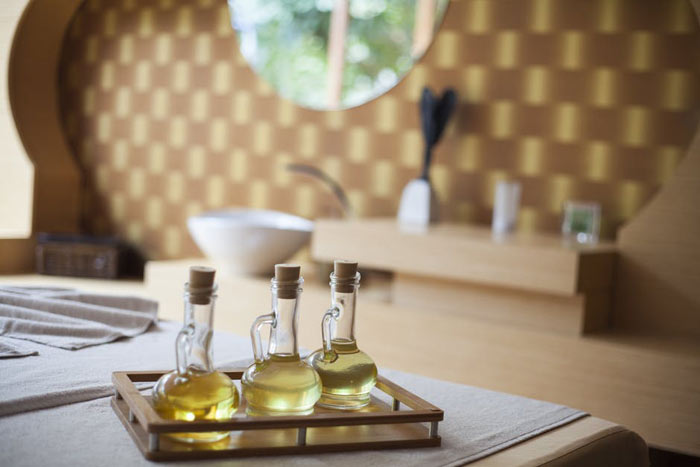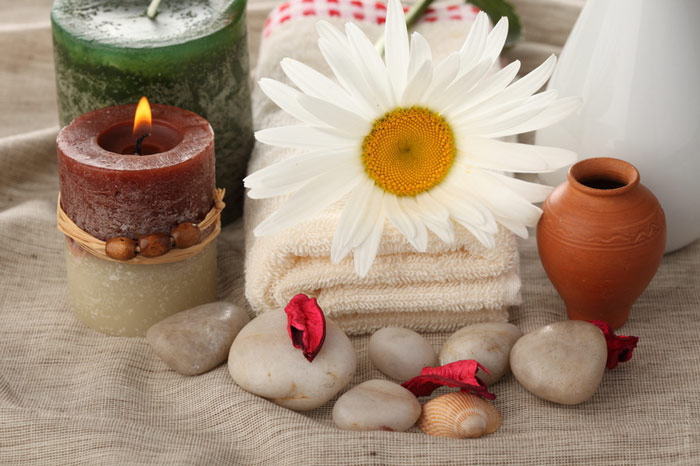Many of us prefer to pour ourselves a glass of our favorite wine to relax after a tiring day at work. But according to numerous studies, trying to cope with stress by drinking only worsens its effects – your anxiety will only increase. In addition, regular consumption of alcohol (even in small amounts) over time can turn into a real addiction. But what can you do to replace it?

Eat tryptophan-rich foods
Many people reach for food when stressed, but this can be a good thing because certain foods can actually help us relax. Foods that contain the essential amino acid tryptophan are great for when you need to calm down or relax. This wonderful amino acid helps the body raise serotonin levels, which is excellent for regulating mood, and melatonin, which enables you to fall asleep and drastically increases the quality and depth of your sleep. The list of tryptophan-saturated foods is extensive, but pay special attention to nuts, cheese, turkey, chicken, and soybeans in your diet.
Increase your physical activity
If you’re feeling stressed, it’s best to go for a run or hit the gym. While you may feel more comfortable and be used to eating popcorn or chips in front of the TV to relax, physical activity is still more suitable for releasing mood-enhancing chemicals like endorphins and anandamide (they help reduce anxiety and improve psychological well-being). Exercise is not only great for your mood and stress levels, but it also helps take your mind off your problems and helps you sleep.
Breathe deeper and slower

If you’re short on time, one of the quickest ways to relax is to take a few deep breaths. Anxiety and stress can cause people to breathe faster than usual, and taking deep and slow breaths can be an effective way to relax.
If you often feel anxious or stressed, it can be helpful to incorporate deep breathing into your routine. Numerous programs or apps built into your smartwatch can help. Do regular breathing exercises or sign up for yoga, Pilates, or meditation classes – all of these physical practices use deep breathing techniques for relaxation and well-being.
Listen to music
Many of us know that listening to our favorite music lifts our mood. Numerous studies have shown that music is also good for stress relief. Studies have also shown a strong link between music and reducing stress levels in everyday life.
Music reduces extreme stress levels in people undergoing surgery, critically ill patients, and pregnant women. Instead of looking for “relaxing” genres of music, it’s better to trust your individual preference and choose the type of music guaranteed to lift your spirits.
Stock up on chocolate
For many, the good news is that chocolate, one of the world’s most popular foods for snacking, is also excellent calming food. Chocolate is rich in magnesium, which helps you relax, and also contains anandamide, a neurotransmitter that enables you to experience a sense of calm.
High in phenylethylamine, chocolate also boosts endorphins, so that’s another reason to relax with your favorite chocolate treat. Luckily, there’s now a wide variety of really healthy chocolate options with no added refined sugar.
Hug more often

Hugging is a well-known technique for boosting mood, and research published in the journal Psychosomatic Medicine confirmed what we’ve known since the beginning of time – a good old-fashioned hug is excellent for reducing stress.
Physical contact has been found to increase oxytocin levels, the love and bond hormone, and decrease levels of the stress hormone cortisol, allowing us to relax quickly. However, cuddling with people is not the only option you can take advantage of: warm-blooded pets are also great for cuddling. Pet ownership has also been linked to stress reduction, which means that playing or “cuddling” with your pet can be a great way to relax after work.
Pamper yourself as often as possible

One of the best and most effective ways to relax is to pamper yourself. If your budget allows, you can go shopping, to a spa, beauty salon, massage, facial or cosmetic procedure, but you can also pamper yourself a little on your own:
- Take a bath.
- Light some candles and lie down with a relaxing face mask.
- Listen to soothing music.
Laugh and smile
Laughter is well known for its therapeutic effects, and many venues now offer laughter therapy or laughter yoga classes for those who want to improve their health and mood.
Studies have shown that even the anticipation of laughter can help us relax, lifting our mood and reducing stress levels in the body. If you’re serious about your relaxation, you might consider taking a laughter class, but relaxing with a funny movie, book, or friend is just as good an option to help you relax.
Try aromatherapy

Turn your home into a relaxing retreat with a scented candle or relaxing essential oils to open up your senses. Some good essential oils for relaxation include chamomile, lavender, neroli, bergamot, patchouli, and ylang-ylang.
Use these oils to relax by adding a few drops to your bath, using an aroma lamp, or spraying an oil spray indoors. Scented candles or sandalwood sticks are also great.
Focus on the “here and now”
Many different things can help you relax. However, if you are not fully immersed in the here and now, it is unlikely that you will be able to benefit from any relaxation technique fully.
If you find it difficult to take your mind off the stress and dismiss past regrets or future worries, try making a list of things to do or think about a little later, set a time and date to address each issue, then try to free your mind, set aside intrusive thoughts and calm down. Then go back to the already written plan of action and solve problems and eliminate stressors one by one, not in a bunch.











